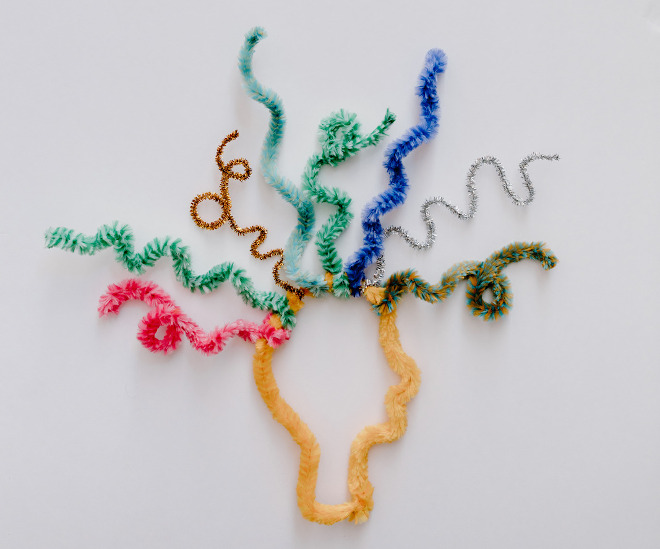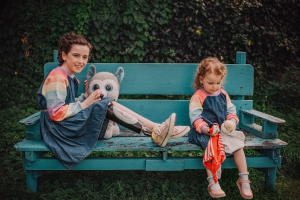Embracing and Celebrating Neurodiversity in Childhood – A Mum’s Story

What is Neurodiversity?
Neurodiversity is a viewpoint that brain differences are normal, rather than deficits. The idea of neurodiversity can have benefits for kids with learning and thinking differences. This concept can help reduce stigma around learning and thinking differences.
Alda Smith, Author of INGNITE! The Firefly Theory and Founder of Kinderfli writes about her personal experience with various neurological differences in her own children and the campaign Kinderfli is running to celebrate all children.
'So, we have A, B and C – what comes after C?' I look expectantly at my seven-year-old son as he studies the letters I have written on the whiteboard. 'B,' he replies confidently. 'Why do you say that?' I ask, trying not to project the panic I feel for this little boy with dyspraxia DCD and a host of other learning disabilities. 'Because C is first in the line and B is standing behind it,' comes the reply. As a mother of three uniquely wired children, I often feel like I'm staring at a stereogram – waiting for the hidden 3D image to appear. Most of the time, it's a grainy mess. Still, sometimes, when I manage to adjust the way I perceive the world and try and see it through my children's eyes, I am blown away by what I discover – like that morning when I realised that for my left-handed son, the front of the ABC line was on the right and that B was therefore after C. Neurodiversity refers to physical differences in the human brain that translate to differences in social, learning, mood, and mental functions. The viewpoint is that these neurological differences in children are as normal as different hair colours or personality traits. ADHD or autism are viewed as just a different kind of neurological expression instead of 'abnormal.' Contrary to perception, however, neurodiversity does not only refer to the 4% of the population in Ireland that is neurologically atypical. The word ‘diversity’ refers to ‘variety’ which means both typical and atypical children contribute to a population’s ‘neurodiverseness’.
How we see neurodiversity in society
As a parent of neurodiverse children, there is one thing a life filled with school and creative awards on the one end and hours and hours of occupational therapy on the other has taught me. It is that neurodiversity should be held in high regard – not merely tolerated. My son teaches me a different way to see the world, I am able to learn from him too and adapt the way I teach. The reality is that we live in a world that is mostly geared towards the typical – not the atypical. Due to the distress this can cause, children with atypical neurological functioning, what should be employed as rare and even highly desirable qualities, are still categorised as disorders. Progress has been made, and I hope this will one day change completely, but all children – neurotypical and atypical - need to be included and supported in reaching their full potential regardless. That is why I founded Kinderfli, where we aim to make healthy and inclusive choices easy for parents, teachers, and healthcare providers. We do this through parent health and development literacy support initiatives and inclusive, functional, integrated nutritional and lifestyle solutions for all children – both typical and atypical.
Kinderfli #IBelongToo Campaign
 One such support initiative is the Kinderfli #IBelongToo Diversity and Inclusion in Childhood Awareness Campaign from 1 September – 20 October 2021. Although amazingly diverse, children worldwide are united in their need to feel secure and loved, and most have an item that brings them comfort. Whether a worn-out plush toy or thread bear blankie, these comforters, though unified in purpose, all have different stories as diverse and unique as the children they belong to.
One such support initiative is the Kinderfli #IBelongToo Diversity and Inclusion in Childhood Awareness Campaign from 1 September – 20 October 2021. Although amazingly diverse, children worldwide are united in their need to feel secure and loved, and most have an item that brings them comfort. Whether a worn-out plush toy or thread bear blankie, these comforters, though unified in purpose, all have different stories as diverse and unique as the children they belong to.
With the #IBelongToo campaign, Kinderfli Ireland, Schooldays.ie, Buddy Bench, Bear Essentials, Tracto and Mums & Tots Ireland hope to encourage families worldwide to celebrate diversity and inclusion in childhood by sharing photos and stories of comforters and the different children they support.
“Communities are strengthened when kindness and inclusion are fostered and the mental wellbeing of children are supported,” says Sam Synott, CEO and founder of Buddy Bench Ireland.
At the end of the seven week campaign, ten children will be invited for a narrative photo session that will be featured in the #IBelongToo book. This portrait of diversity and inclusion in childhood will be made available in aid of Buddy Bench and other nominated charities over the coming festive season.
This piece was written by Alda Smith, Author of INGNITE! The Firefly Theory and Founder of Kinderfli. Visit Kinderfli for details on how to participate in #IBelongToo. For more information contact Alda Smith at info@kinderfli.com
